11 movies and TV shows that explore discrimination in the workplace
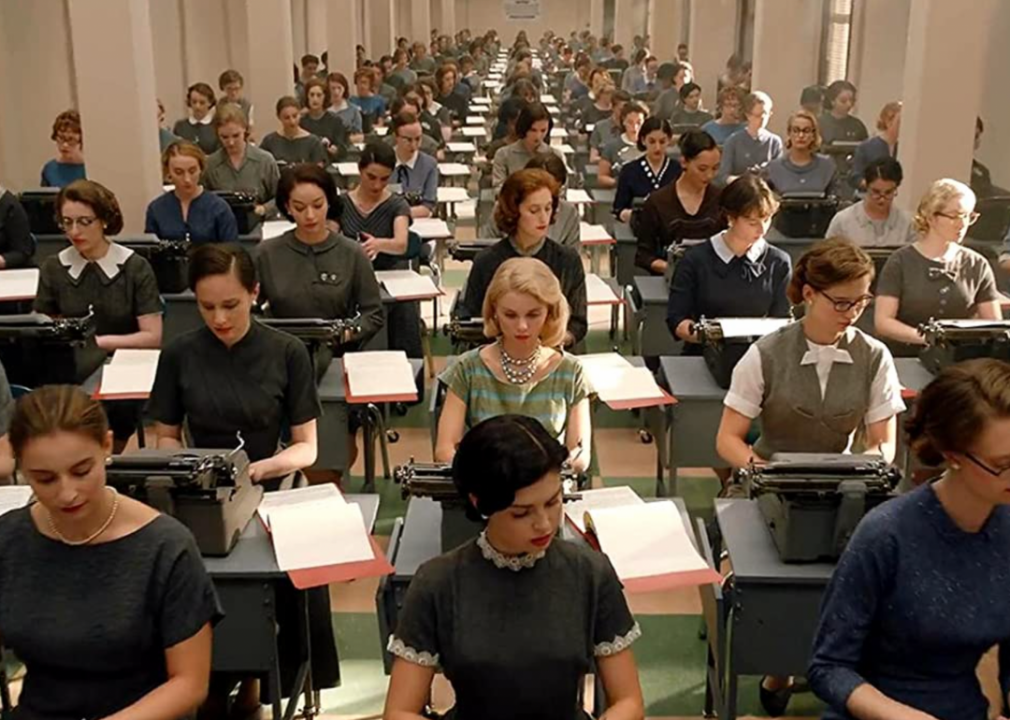
Amazon Studios
11 movies and TV shows that explore discrimination in the workplace
In 1964, following a 250,000-person march on Washington D.C. led by Martin Luther King Jr. and other Black leaders, Congress passed the Civil Rights Act. Among the many sections of the act was one that established the Equal Employment Opportunity Commission. The EEOC is intended to prevent workplace discrimination and is responsible for investigating discrimination complaints based on a person’s race, gender, sexual orientation, age, religion, disability, genetic information, and national origin.
According to the EEOC’s own statistics, individual charge filings have been decreasing steadily since 2016, which is certainly encouraging news. Still, workplace discrimination remains a widespread issue that has worked its way into art and popular culture. A number of movies and TV shows over the last few decades have depicted various sorts of work-related harassment and discrimination.
Pyn looked into the history of films and TV shows that depict and explore discrimination in the workplace, whether based on race, sex, class, or ability. To qualify for this list, the movie or show had to have at least a 6.5 on IMDb or at least a Metascore of 65. Entertaining, illuminating, thought-provoking, and often sobering, these onscreen stories remind us of the many forms workplace discrimination can take. They’re also a reminder of how far we’ve come—and how far we still have ahead.
![]()
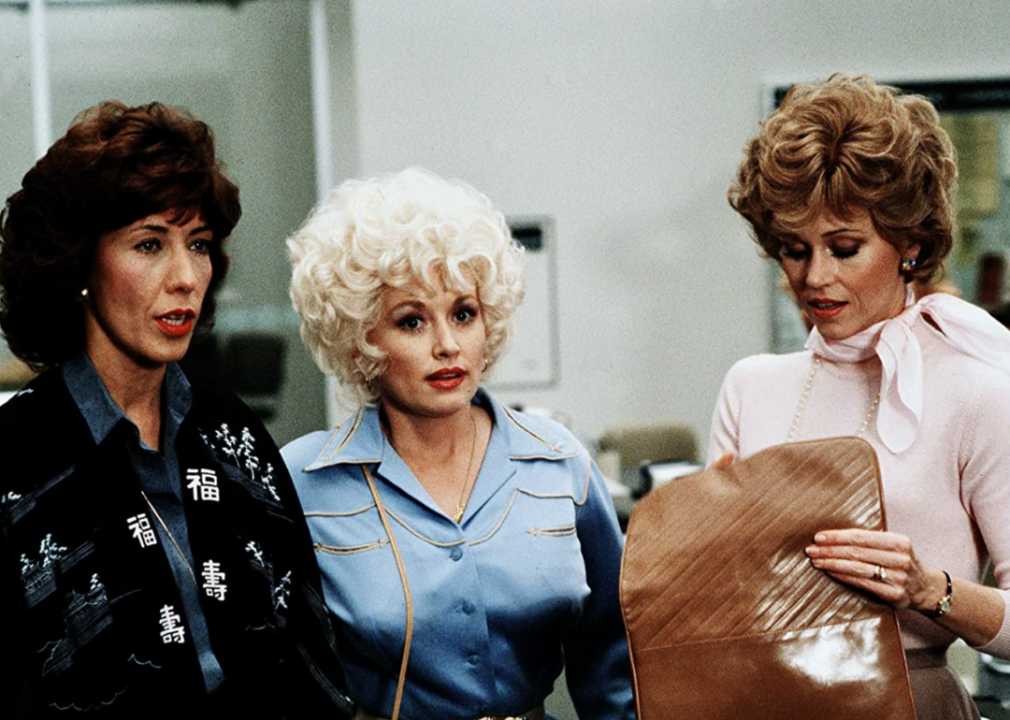
IPC Films
9 to 5 (1980)
– Director: Colin Higgins
– IMDb user rating: 6.9
– Metascore: 58
– Runtime: 109 minutes
In “9 to 5,” Dolly Parton, Jane Fonda, and Lily Tomlin star as a trio of women who set out to get even with their “sexist, egotistical, lying, hypocritical bigot” of a boss. Throughout the early portions of the movie, the ladies’ boss (Dabney Coleman) calls them dumb, demands they perform trivial tasks on his behalf, is sexually inappropriate, and promotes an underqualified male employee over one of them, so the trio orchestrates a twist of fate that leaves their boss incapacitated and the three of them in charge of the company.
The various changes they implement, which lead to a more fair and equal work environment, wind up making the company more successful. Women’s activist Jane Fonda, who came up with the concept for the film, was inspired by a real-life group of women in Boston who created a safe and supportive space to share their gripes about working in male-dominated settings. But despite dealing with very real, and very serious, issues, Fonda insisted the tone of the movie remain light so it wouldn’t sound preachy and viewers would be more open to its message.
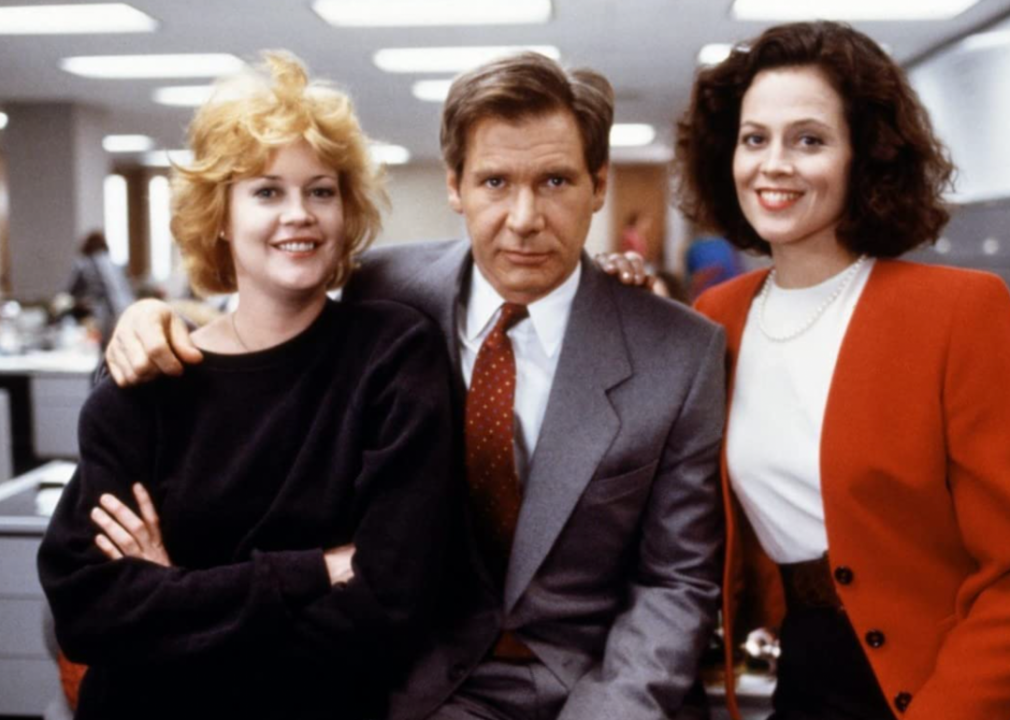
Twentieth Century Fox
Working Girl (1988)
– Director: Mike Nichols
– IMDb user rating: 6.8
– Metascore: 73
– Runtime: 113 minutes
A commercial and critical success, “Working Girl” illustrates how women in the workplace aren’t only discriminated against by men, but also by each other. In this late ’80s rom-com, Melanie Griffith plays a smart, ambitious secretary from Staten Island who winds up getting duped by her female boss (Sigourney Weaver) who tries to take credit for her idea. In order to get back at her boss, Griffith pretends to be someone she’s not so she can get the accolades she rightfully deserves.
Throughout the film we see how the women’s classes and education levels afford them different opportunities, make them more (or less) aware of how they need to act in order to get ahead in the male-dominated world, and just generally enable them to act in an unfair manner towards one another. The film earned six Academy Award nominations the year it was released, which sparked a flurry of conversation about its message—a message that remains incredibly relevant to this day.
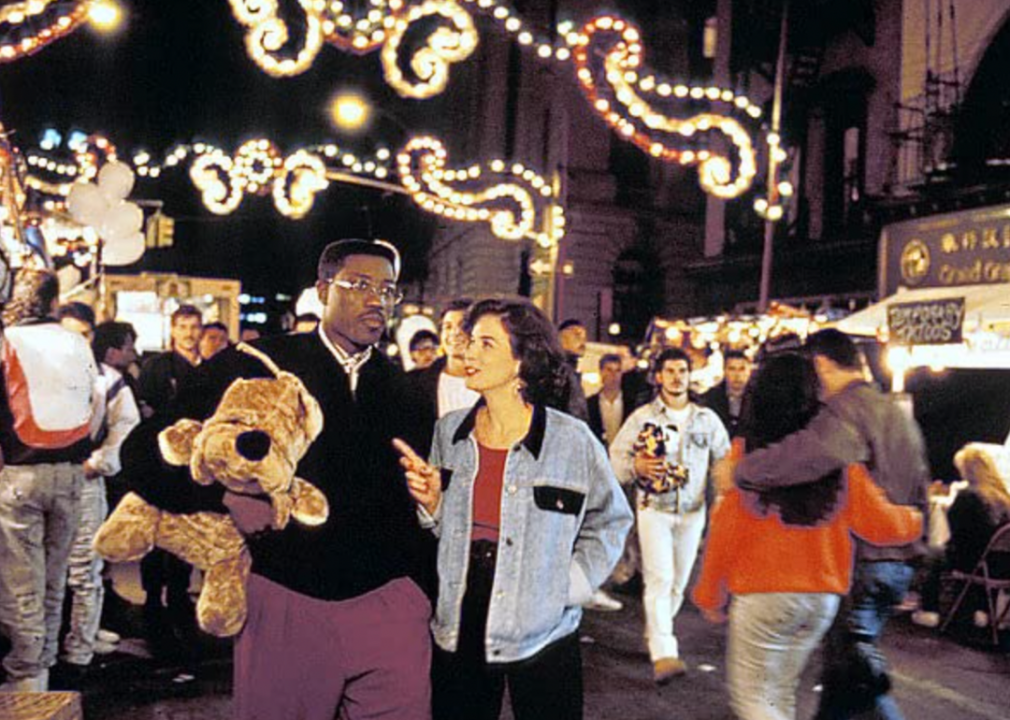
Universal Pictures
Jungle Fever (1991)
– Director: Spike Lee
– IMDb user rating: 6.6
– Metascore: 78
– Runtime: 132 minutes
Spike Lee’s fifth feature film, “Jungle Fever” has an all-star cast that includes big names like Wesley Snipes, Ruby Dee, Samuel L. Jackson, Halle Berry, and Queen Latifah. It tells the story of a married Black architect, Flipper Purify (Snipes), who, battling feelings of dissatisfaction in his own life, begins an affair with an engaged white woman (Annabella Sciorra).
One of the many factors leading to Flipper’s unhappiness is the racism he experiences at work. The only person of color in his entire firm, Flipper loses it when his promotion to partner is refused because of his race (a slight that happens following a conversation with his boss about how new hires and promotions are awarded based on achievement, not skin tone—a fact that is blatantly untrue). The bigotry Flipper experiences in the workplace remains all too real of an issue today, as demonstrated by a 2021 report from McKinsey & Company, which revealed that Black workers make up only 7% of the workforce at a managerial level.
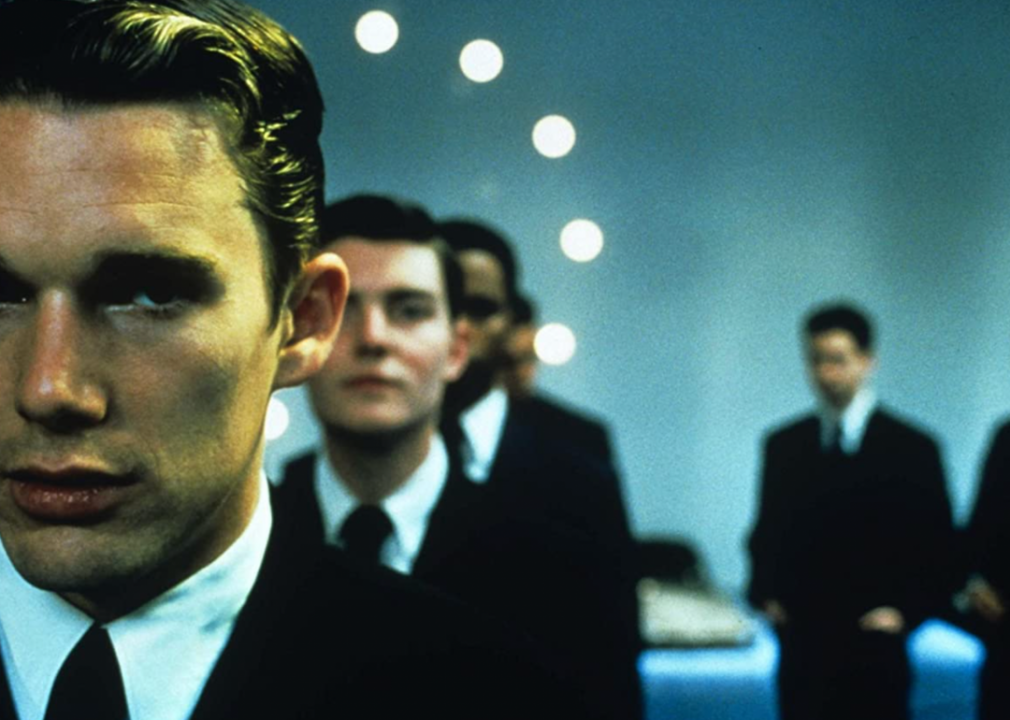
Columbia Pictures
Gattaca (1997)
– Director: Andrew Niccol
– IMDb user rating: 7.8
– Metascore: 64
– Runtime: 106 minutes
The sci-fi film “Gattaca” imagines a world where eugenics is a widely accepted practice, and where your status, as either a designed human (a valid) or a naturally conceived human (in-valid), determines your place in society. Ethan Hawke plays Vincent Freeman, an in-valid whose status prevents him from getting the sort of high-skilled job he wants. With the help of a valid (Jude Law) who can no longer function the way he was “designed” to in society, Vincent assumes his valid identity, which enables him to fulfill his dream of joining a space mission.
His success in this, and other areas of his life, is intended to spark thought in viewers about whether or not our genetic makeup should (or does) matter, or if potential and ability should take precedence over race, gender, background, or will. Though it was a box office flop, the movie has become something of a cult classic, and has been widely praised by film critics like Roger Ebert who called the movie “one of the smartest and most provocative of science fiction films.”
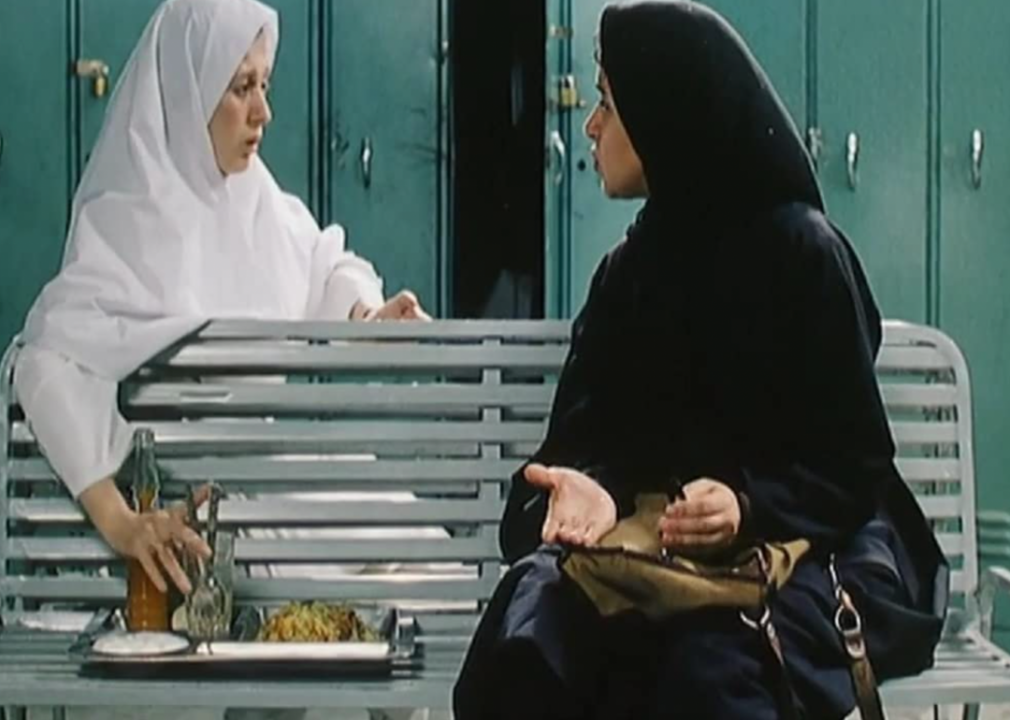
Direction du Développement et de la Coopération (DDC), Département Fédéral des Affaires Etrangères
The Circle (2000)
– Director: Jafar Panahi
– IMDb user rating: 7.4
– Metascore: 85
– Runtime: 90 minutes
The Iranian movie “The Circle” is an intimate look at the gross discrimination women experience in male-dominated societies. The film follows a number of women, all of whom have spent some length of time in jail for unidentified crimes (which, it’s implied, were mere transgressions, not serious offenses). In one particular storyline, a nurse refuses to help another young woman obtain an abortion because she fears her association with the convict will reveal her own troubled past, costing her both her job and marriage.
Though it’s a small moment, the plotline addresses the unfair discrimination ex-convicts often experience when it comes to finding gainful employment. Our society believes prison is a place for reform and that once offenders have completed their sentences they should be treated as equal members of society, but in reality, they are often denied basic rights like equal employment opportunities. According to a 2018 study by the Prison Policy Initiative, former inmates have an unemployment rate of 27%, which is higher than the total unemployment rate at any time in history, including during the Great Depression.
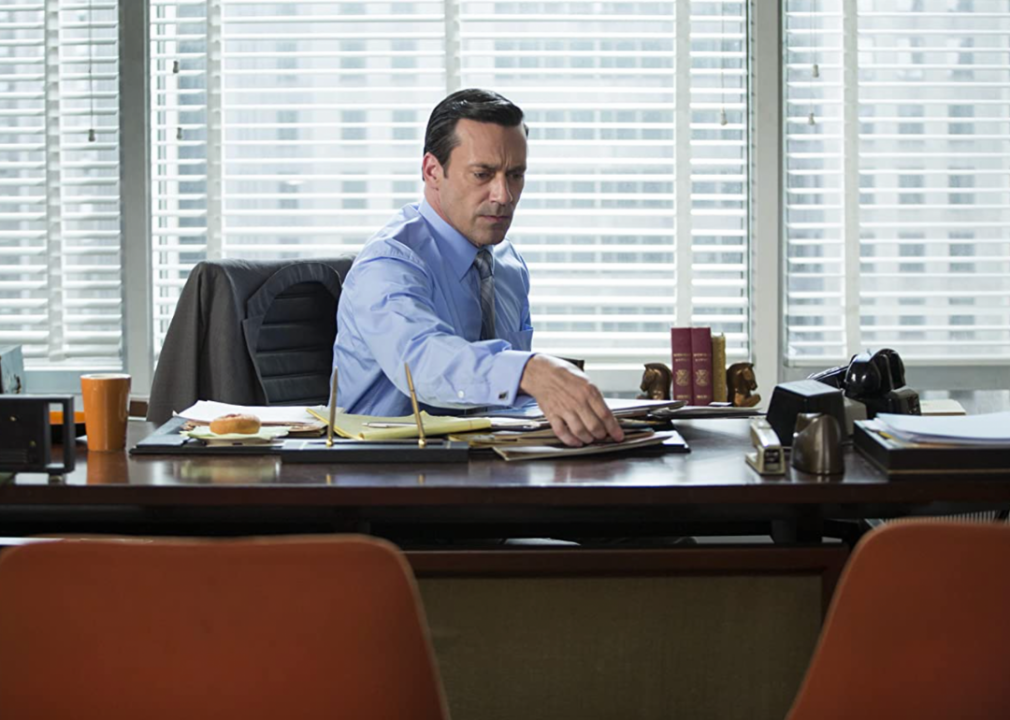
Lionsgate Television
Mad Men (2007–2015)
– Stars: Elisabeth Moss, Jon Hamm, John Slattery, January Jones
– IMDb user rating: 8.7
– Metascore: data not available
A critically acclaimed period drama, “Mad Men” won 16 Emmy Awards and five Golden Globes over the course of its seven-season run. The series, which originally aired on AMC, followed the lives of the advertising men that worked on Madison Avenue in New York during the glory days of print advertisements. While much of the series was focused on these forward-facing male creatives, many plotlines also centered on the women—mostly the secretaries who were overworked, underpaid, sexually objectified, and consistently denied promotions despite often being the brains behind the taglines.
Dozens of articles have been written by critics that closely examine the multitude of workplace discrimination issues throughout the series, and a number of them, including not receiving equal pay for equal work, remain relevant to this day. In 2020, according to the Department of Labor, women overall still only earned 82 cents for every $1 a man earned, and in terms of inflation-adjusted constant-dollar earnings, women of color have seen a much lower rise in earnings than white women over the last 40 years.
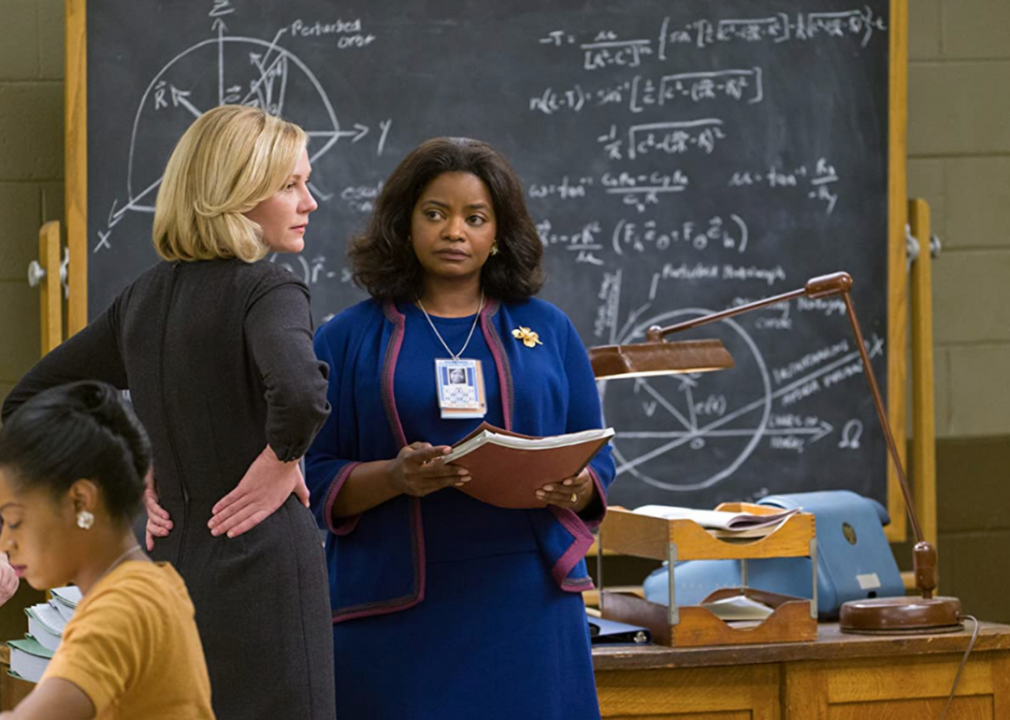
Fox 2000 Pictures
Hidden Figures (2016)
– Director: Theodore Melfi
– IMDb user rating: 7.8
– Metascore: 74
– Runtime: 127 minutes
“Hidden Figures” is a historical drama that follows a group of Black female mathematicians who work for NASA during the 1960s. Aside from dealing with the discrimination that came with living in the South at the time, the women also deal with injustices like being relegated to a second building due to the color of their skin, walking half a mile to the nearest “colored” bathroom, and having to petition the court in order to be allowed to attend classes necessary for their careers.
In spite of these obstacles, the women find huge success, becoming NASA’s first Black female engineer (Janelle Monae as Mary Jackson), supervisor (Octavia Butler as Dorothy Vaughan), and research mathematician (Taraji P. Henson as Katherine Johnson) and calculating the trajectories of important missions, including the first orbital space flight and the first moon landing. The film is supposed to be inspiring, sure, but it should also serve as a humble reminder of how difficult it was to succeed in a career as a person of color during the mid-20th century. In 2021, the Department of Labor reported that Black women have the highest labor force participation rate out of all groups of women, but they still remain grossly underrepresented in leadership positions.
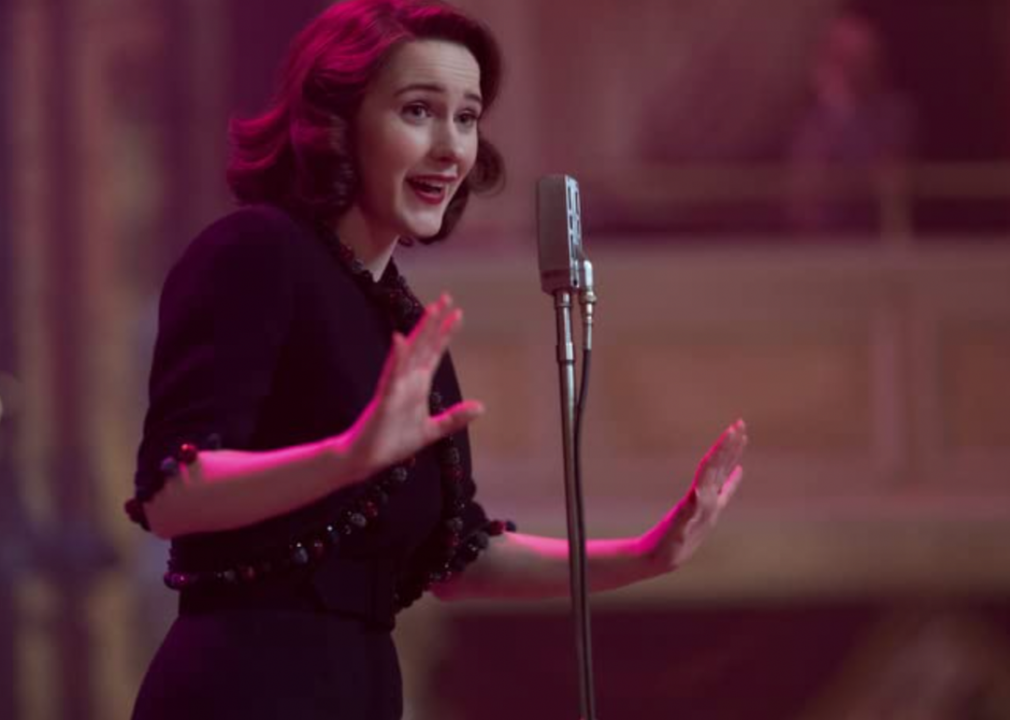
Amazon Studios
The Marvelous Mrs. Maisel (2017–present)
– Stars: Rachel Brosnahan, Alex Borstein
– IMDb user rating: 8.7
– Metascore: data not available
Amazon Prime’s hit series “The Marvelous Mrs. Maisel” is a period comedy-drama that follows a 1950s housewife-turned-comedian as she attempts to launch her showbiz career in New York. Created by Amy Sherman-Palladino (who previously brought us shows like “Gilmore Girls” and “Bunheads”), the series, which is now in its fourth season, is smart, witty, and culturally relevant.
In many episodes, the main character, Midge (Rachel Brosnahan), is often mistaken for an assistant or singer, anything but what she is—a serious, professional performer. The repeated misidentification trope serves to highlight the fact that women aren’t often taken seriously in the workplace. And when they are present in a professional setting, it’s often assumed they are only filling support roles like secretaries, assistants, and office administrators.
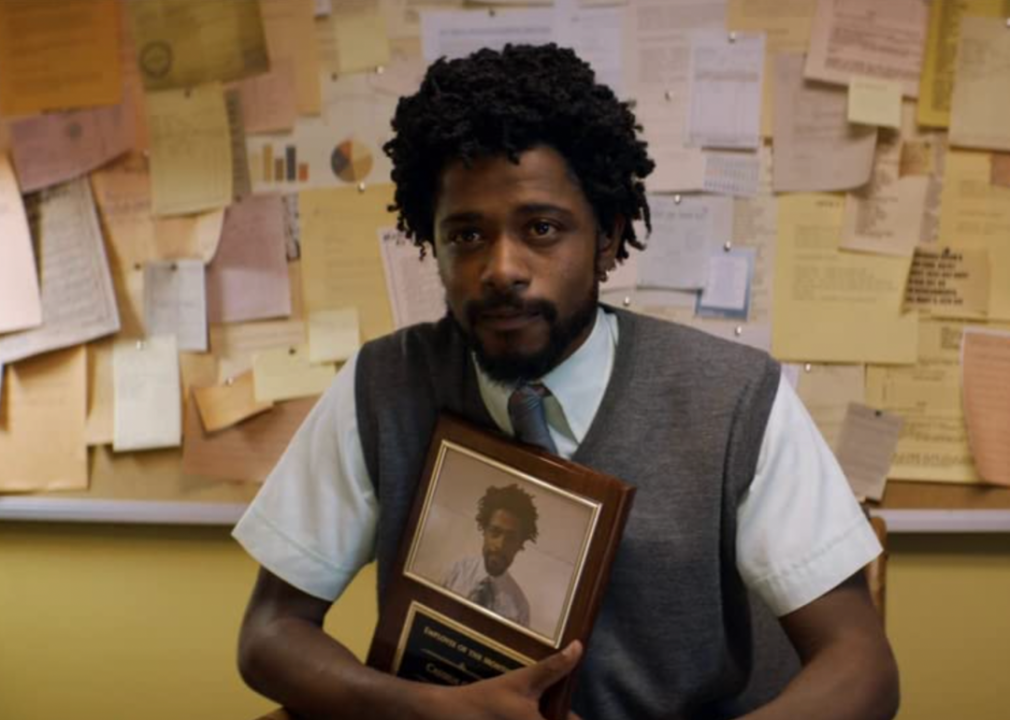
Cinereach
Sorry to Bother You (2018)
– Director: Boots Riley
– IMDb user rating: 6.9
– Metascore: 80
– Runtime: 112 minutes
Statistically, it’s easier to succeed in the corporate world as a white person than as a person of color. White workers get paid more, are promoted more often, and have more access to higher education opportunities that allow them to nab these competitive positions. The surrealist black comedy “Sorry to Bother You” dials in on this white privilege, as it follows a young, Black telemarketer (Lakeith Stanfield) who adopts a white accent in order to succeed at his job.
As his success allows him to climb the corporate ladder, his eyes are opened to the dark side of capitalism and corporate greed, and he finds himself wrapped up in a twisted plot meant to ensure his employer’s world domination. Vox critic Alissa Wilkinson called the movie “bonkers” in the best way.
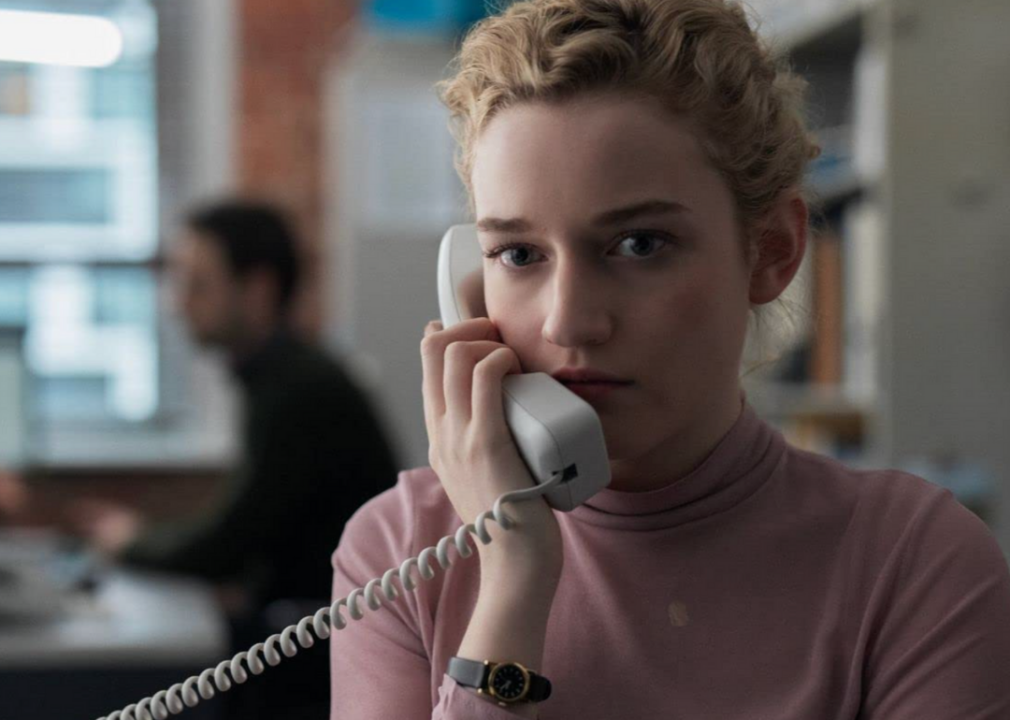
3311 Productions
The Assistant (2019)
– Director: Kitty Green
– IMDb user rating: 6.3
– Metascore: 79
– Runtime: 87 minutes
Julia Garner (recently of “Inventing Anna” and “Ozark” fame) stars as the titular character in “The Assistant,” a film not so loosely based on the culture of Miramax during the Harvey Weinstein years. Jane works long hours, performing demanding and menial tasks, in fear of getting anything wrong lest her abusive boss takes his rage out on her.
When she eventually gets the courage to blow the whistle on her employer’s inappropriate conduct, Jane is ignored and blatantly told HR will not be following up on her report. She’s not alone in experiencing sexual harassment in the workplace: According to a report by the Institute for Women’s Policy Research, eight out of every 10 sexual harassment charges filed with the Equal Employment Opportunity Commission are filed by women. Additionally, 71% of these charges include an additional charge of retaliation, meaning bosses, like Jane’s, are punishing their employees for speaking up. Arguably, this sort of toxic workplace culture discourages many women from joining and remaining in the workforce, which, at the end of the day, hurts us all.
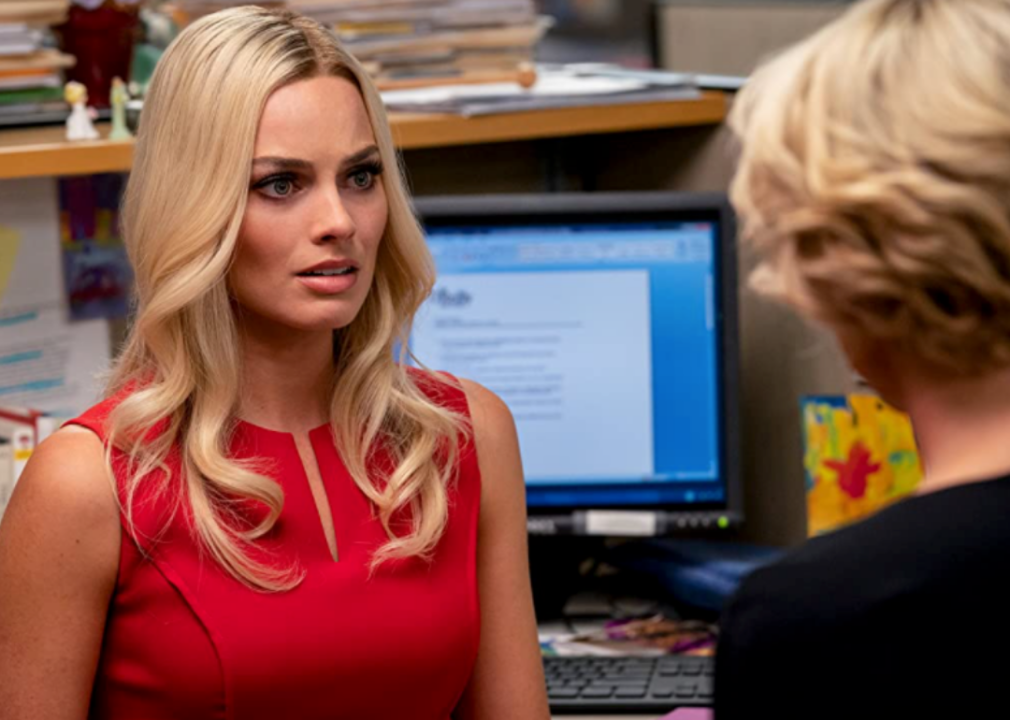
Creative Wealth Media Finance
Bombshell (2019)
– Director: Jay Roach
– IMDb user rating: 6.8
– Metascore: 64
– Runtime: 109 min
As a longtime television journalist, Gretchen Carlson usually reports the news, not headlines it. The former host of Fox News programs “Fox and Friends” and “The Real Story with Gretchen Carlson” became the center of one of the biggest breaking stories of 2016 when she filed a sexual harassment lawsuit against Roger Ailes, the network’s powerful founder, chairman, and CEO. “Bombshell” depicts the firestorm of events that led to Ailes’ downfall as several women, including rising star Megyn Kelly (Charlize Theron), stepped forward after Carlson (Nicole Kidman) filed suit. Ailes was forced to resign as the network’s culture of sexual harassment and retaliation was exposed.
After Carlson received a $20 million settlement and a public apology from the network, she went on to become an outspoken advocate for ending non-disclosure agreements, or NDAs. These are standard clauses that many sexual harassment survivors must sign, which forfeit their right to talk about their experiences publicly or in a court of law. Carlson co-founded a nonprofit, Lift Our Voices, dedicated to banning NDAs. She also testified in Congress for a bipartisan bill to end legal clauses that silence survivors of sexual harassment and sexual assault disputes, which was signed into law in March 2022.
This story originally appeared on Pyn
and was produced and distributed in partnership with Stacker Studio.
